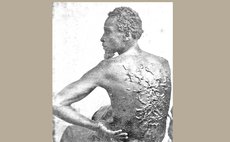Misdemeanours of elected officials
As allegations continue to mount about our parliamentary representatives, it is useful to step back and ask what general guidelines we should use in evaluating these accusations.
Charges such as these should not be judged on the basis of political affiliation. No one party has a monopoly on misconduct, and we should neither accuse nor defend on the basis of party support. While almost everyone agrees with this in principle, few in fact respect it in practice. Our political leaders must set an example by evaluating allegations in an even-handed way, seeking to do what is right rather than what is politically expedient; even if it means resigning or losing an election. That is what a statesman would do, but sadly we have greedy politicians, no statesmen.
We should realize that allegations are not facts. We ought not to assume that where there's smoke there's fire. Sometimes behind the smoke are people who just love to create smoke. Before passing judgment, we should be sure of the facts. Nevertheless officials about whom allegations are continuously levied should be regarded with suspicion, as good leaders should conduct their affairs and that of the country in such a prudent manner as to avoid even the slightest suspicion of wrong doing.
We should realize the importance of certain basic principles of representative government. The first of these is that our representatives are elected to represent the people, not to enrich themselves. We choose one candidate over another on the basis of our understanding of how they will represent our interest and how well they will serve the country. These decisions should not be swayed by bribery or by consideration of monetary gain.
Conflict of interest laws are intended to draw a sharp line between the public interest and a representative's private interest. The basic rule is clear: elected officials should not derive personal financial benefits from their decisions made in their capacity as public servants.
Moreover, because Government rests on trust we expect our public officials - appointed as well as elected- to avoid even the appearance of a conflict of interest. Without trust, democratic government is replaced either by the rule of force or a cynical indifference on the part of its citizens. Without trust there is no general consent of governance, the foundation of democracy. Greed, low standards, political vendetta and nepotism seem the order of the day and good citizens are rapidly losing trust in government, the police and the judiciary.
There are times when government officials are faced with decisions from which they may derive financial benefit. In such a situation officials should simply step back and excuse themselves, handing over the power of decision to others for whom there is not even the appearance of a conflict of interest. This is common within the judiciary, but all too rare in the legislative and executive branches of government.
The best way to generate public trust is to ensure transparency in the process. While some governments do try, others simply do not bother. When things go wrong and errors are discovered, they simply refund, no investigation, business continues as usual.
Of course, there are certain situations in which transparency could be dangerous or inappropriate in which highly classified information would be made public if the process were completely transparent. Publication of the specifications for a top-secret venture would purchase transparency at the price of national security--not a trade -off most citizens would want.
When public transparency is not possible, it becomes more important to have an impartial and independent oversight within the government which scrutinizes those decisions that cannot be made public. Committees are sometimes formed and given the power to access and oversee highly secret documents under a seal of confidentiality, but all too often these committees comprise close friends of those being overseen.
The allegations against elected officials not only raise questions about their integrity, but also challenge our legislative and investigative structures to provide the public with a clear picture of the facts of the case and to exercise its oversight responsibilities in a decisive manner. The citizens of the country deserve nothing less.
Does the public know the details of the memorandum of understanding with the Chinese? Is it top secret and a threat to national security if made public? Dominicans, I urge you to open your minds, read, inform and educate yourselves, in the final analysis it will Cost U LESS.
D .A. Corriette




